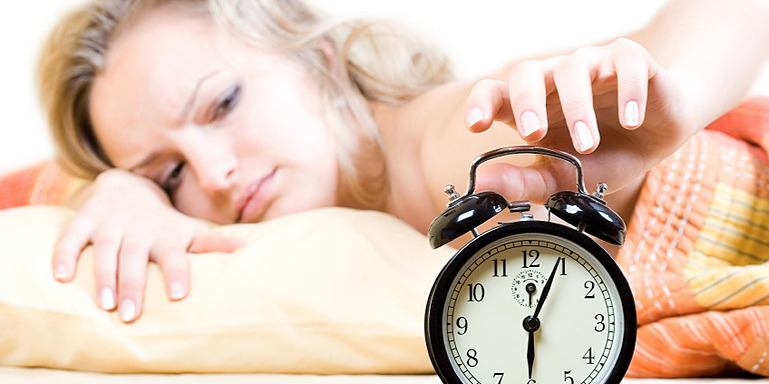Why lack of sleep is bad for your health
Many effects of a lack of sleep, such as feeling grumpy and not working at your best, are well known. But did you know that sleep deprivation can also have profound consequences on your physical health?
One in 3 of us suffers from poor sleep, with stress, computers and taking work home often blamed.
However, the cost of all those sleepless nights is more than just bad moods and a lack of focus.
Regular poor sleep puts you at risk of serious medical conditions, including obesity, heart disease and diabetes – and it shortens your life expectancy.
It’s now clear that a solid night’s sleep is essential for a long and healthy life.
How much sleep do we need?
Most of us need around 8 hours of good-quality sleep a night to function properly – but some need more and some less. What matters is that you find out how much sleep you need and then try to achieve it.
As a general rule, if you wake up tired and spend the day longing for a chance to have a nap, it’s likely that you’re not getting enough sleep.
A variety of factors can cause poor sleep, including health conditions such as sleep apnoea. But in most cases, it’s due to bad sleeping habits.
What happens if I don’t sleep?
Everyone’s experienced the fatigue, short temper and lack of focus that often follow a poor night’s sleep.
An occasional night without sleep makes you feel tired and irritable the next day, but it won’t harm your health.
After several sleepless nights, the mental effects become more serious. Your brain will fog, making it difficult to concentrate and make decisions. You’ll start to feel down, and may fall asleep during the day. Your risk of injury and accidents at home, work and on the road also increases.
If it continues, lack of sleep can affect your overall health and make you prone to serious medical conditions, such as obesity, heart disease, high blood pressure and diabetes.
Here are 7 ways in which a good night’s sleep can boost your health:
Sleep boosts immunity
If you seem to catch every cold and flu that’s going around, your bedtime could be to blame. Prolonged lack of sleep can disrupt your immune system, so you’re less able to fend off bugs.
Sleep can slim you
Sleeping less may mean you put on weight! Studies have shown that people who sleep less than 7 hours a day tend to gain more weight and have a higher risk of becoming obese than those who get 7 hours of slumber.
It’s believed to be because sleep-deprived people have reduced levels of leptin (the chemical that makes you feel full) and increased levels of ghrelin (the hunger-stimulating hormone).
Sleep boosts mental well-being
Given that a single sleepless night can make you irritable and moody the following day, it’s not surprising that chronic sleep debt may lead to long-term mood disorders like depression and anxiety.
When people with anxiety or depression were surveyed to calculate their sleeping habits, it turned out that most of them slept for less than 6 hours a night.
Sleep prevents diabetes
Studies have suggested that people who usually sleep less than 5 hours a night have an increased risk of developing diabetes.
It seems that missing out on deep sleep may lead to type 2 diabetes by changing the way the body processes glucose, which the body uses for energy.
Sleep increases sex drive
Men and women who don’t get enough quality sleep have lower libidos and less of an interest in sex, research suggests.
Sleep wards off heart disease
Long-standing sleep deprivation seems to be associated with increased heart rate, an increase in blood pressure and higher levels of certain chemicals linked with inflammation, which may put extra strain on your heart.
Sleep increases fertility
Difficulty conceiving a baby has been claimed as one of the effects of sleep deprivation, in both men and women. Apparently, regular sleep disruptions can cause trouble conceiving by reducing the secretion of reproductive hormones.
How to catch up on lost sleep
If you don’t get enough sleep, there’s only one way to compensate – getting more sleep.
It won’t happen with a single early night. If you’ve had months of restricted sleep, you’ll have built up a significant sleep debt, so expect recovery to take several weeks.
Starting on a weekend, try to add on an extra hour or 2 of sleep a night. The way to do this is to go to bed when you’re tired, and allow your body to wake you in the morning (no alarm clocks allowed!).
Expect to sleep for upwards of 10 hours a night at first. After a while, the amount of time you sleep will
Don’t rely on caffeine or energy drinks as a short-term pick-me-up. They may boost your energy and concentration temporarily, but can disrupt your sleep patterns even further in the long term.
Learn More
For more information about energy, fatigue, and sleep, the following resources may be helpful.
- Canadian Sleep Society. https://css-scs.ca/
- National Sleep Foundation: https://www.sleepfoundation.org/
- Sleep Apnea. Government of Canada. https://www.canada.ca/en/public-health/services/chronic-diseases/sleep-apnea.html
- Resources and prevention strategies to manage Fatigue in the workplace. Public Services Health and Safety Association. https://www.pshsa.ca/fatigue/
- Fatigue Answer Sheet. Canadian Occupational Centre for Occupational Health and Safety. https://www.ccohs.ca/oshanswers/psychosocial/fatigue.html
Note: The
contents on Avail such as text, graphics, images, and information is not
intended to be a substitute for professional medical advice, diagnosis, or
treatment. Always seek the advice of your physician or other qualified health
provider with any questions you may have regarding a medical condition. Never
disregard professional medical advice or delay in seeking it because of
something you have read on this or any other website.
Source: Adapted from information provided the National Health Services (UK) open licence.













